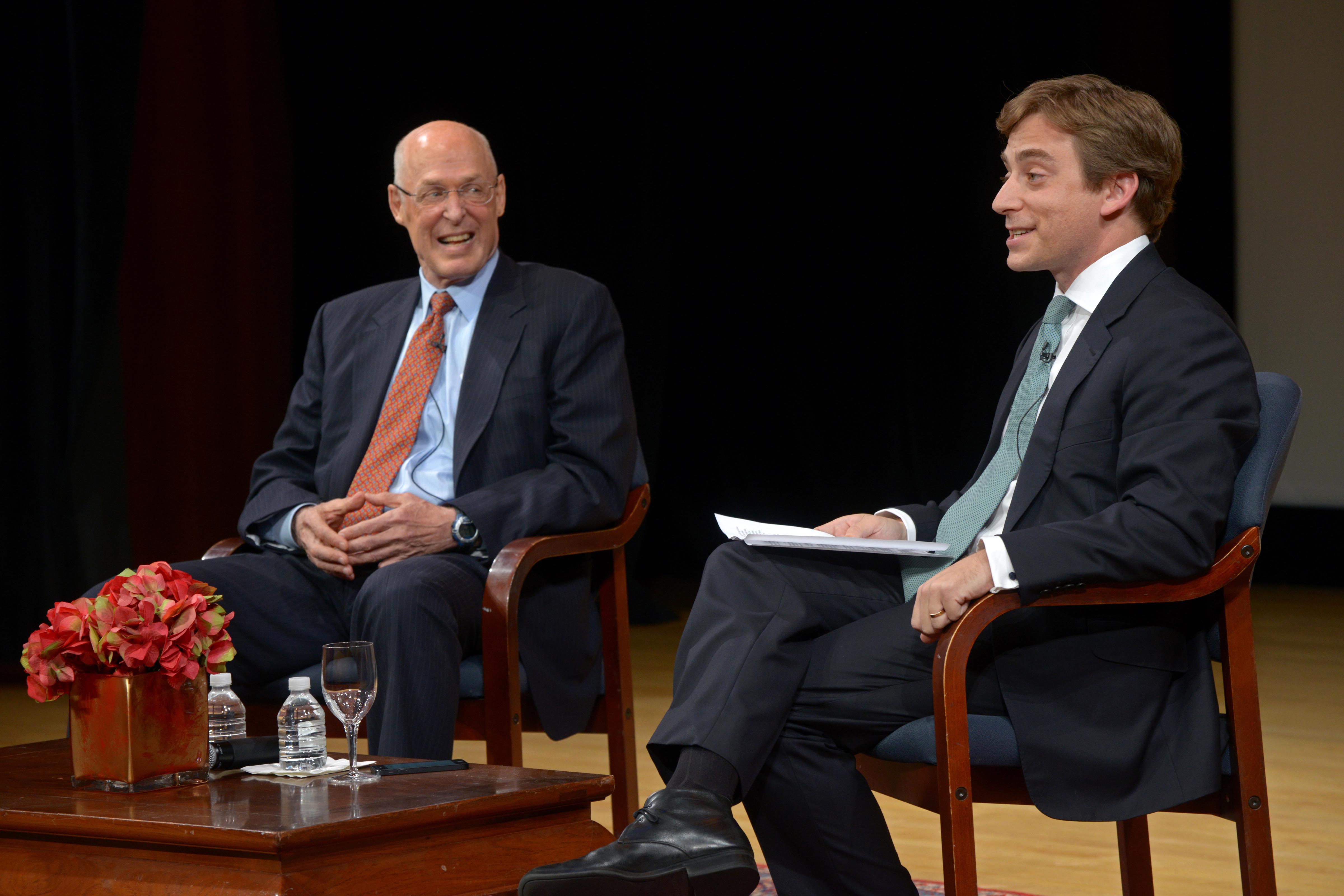
Hank Paulson kicked off the launch of his new book, Dealing with China, on April 13 with a conversation onstage with New Yorker writer Evan Osnos before a packed audience at the Asia Society.
Paulson explained why he wrote the book, which gives an insider’s view of Chinese reform at the highest levels over the past 25 years. He talked about the fact that Americans’ belief that China’s economic rise is good for the United States is waning. “The consensus is fraying,” he said. The book, he said, aims to explain the complexity of China’s challenges and make the case for a robust US-China relationship—“the most important bilateral relationship in the world.”
Paulson spelled out the enormous challenges faced by President Xi Jinping as he tries to reboot China’s $10 trillion economy while rooting out rampant corruption.
Xi is tackling problems that the Chinese people care about, Paulson said, including widespread corruption, a polluted environment, inconsistent property rights and a household registration system that prevents rural immigrants from obtaining urban social services.
Osnos asked if China could become a truly innovative economy when the government is tightening controls on the Internet, on intellectual debate and clamping down on NGOs. “I think it’s inconsistent in an information economy to be able to innovate at the level needed if you don’t have a free flow of ideas,” Paulson said, adding that as head of Goldman Sachs, he needed to be connected at all times to economic and political information.
Paulson peppered his talk with colorful anecdotes about his time in China. In the 1990s, he met with then-President Jiang Zemin, who looked him in the eye and stated, in perfect English, “Assets = Liabilities plus Equity.” “At that point, I realized the Chinese were serious about reforming the economy!” Paulson said. He also recounted an episode where Goldman Sachs lost a deal when Premier Li Peng’s daughter complained (presumably to her father) that “the foreigners” were making too much profit from one transaction.
Paulson concluded by stressing the importance of working with China as it emerges onto the global stage. “Xi Jinping isn’t going to wait for the United States to declare China a great power,” Paulson said. In the meantime, he emphasized, it’s important for the United States to deal pragmatically with China while welcoming it to the international table.





